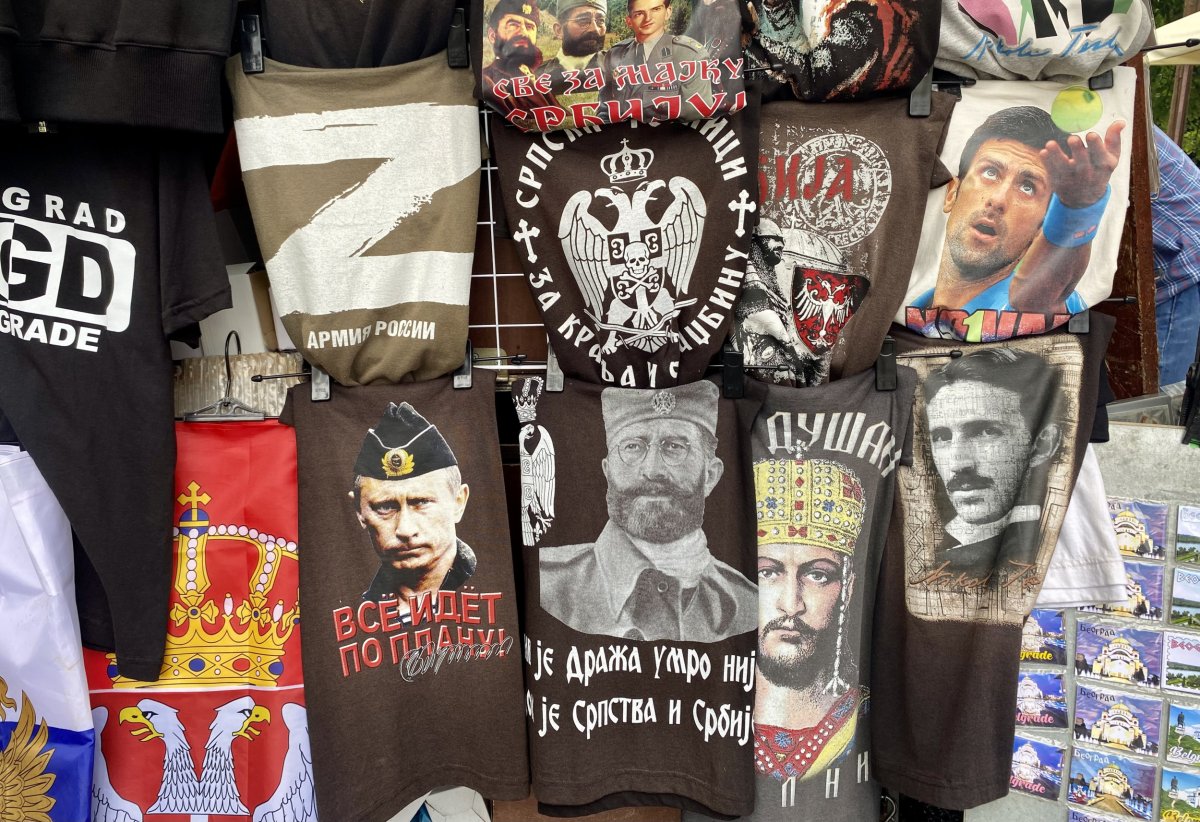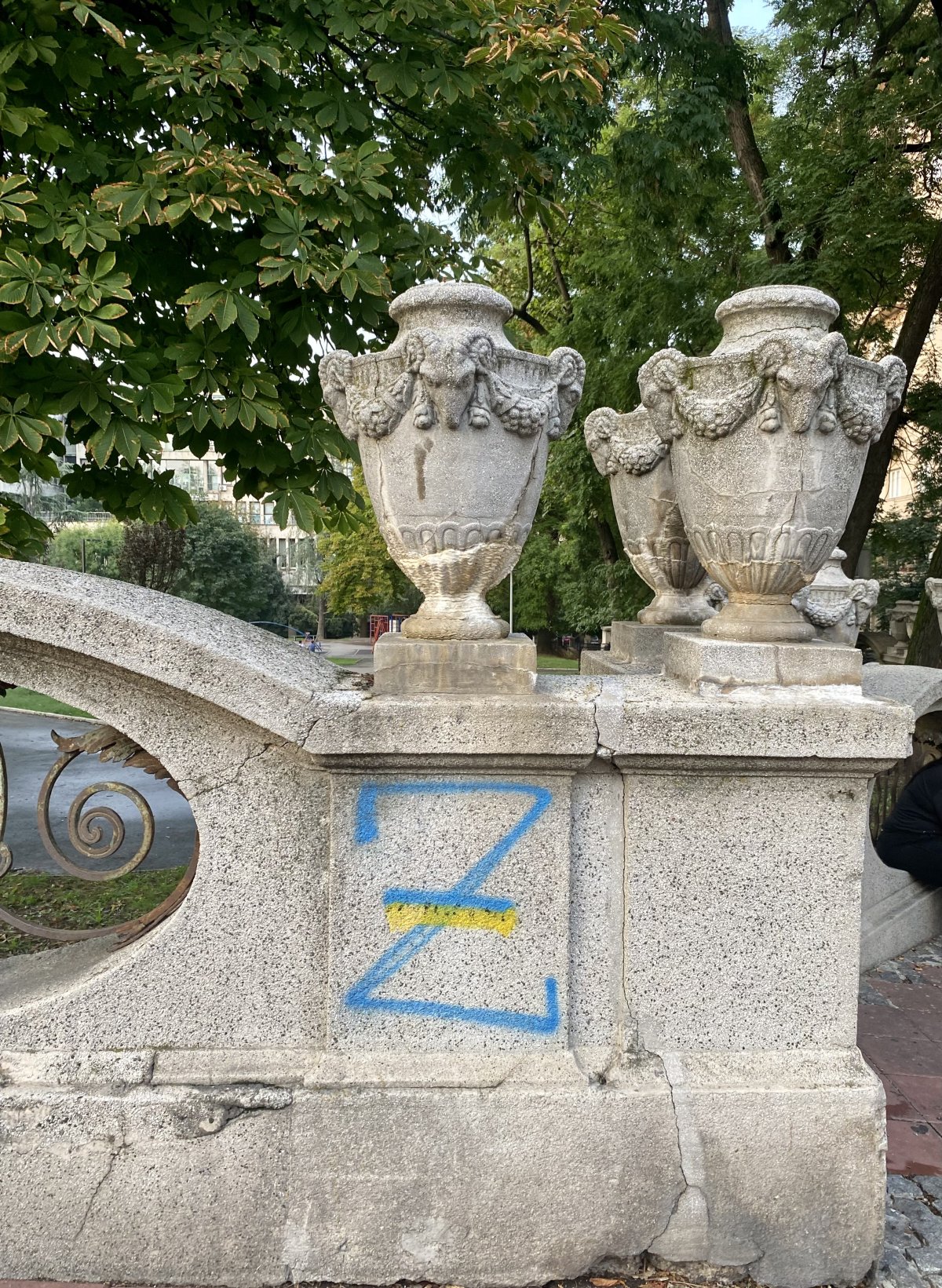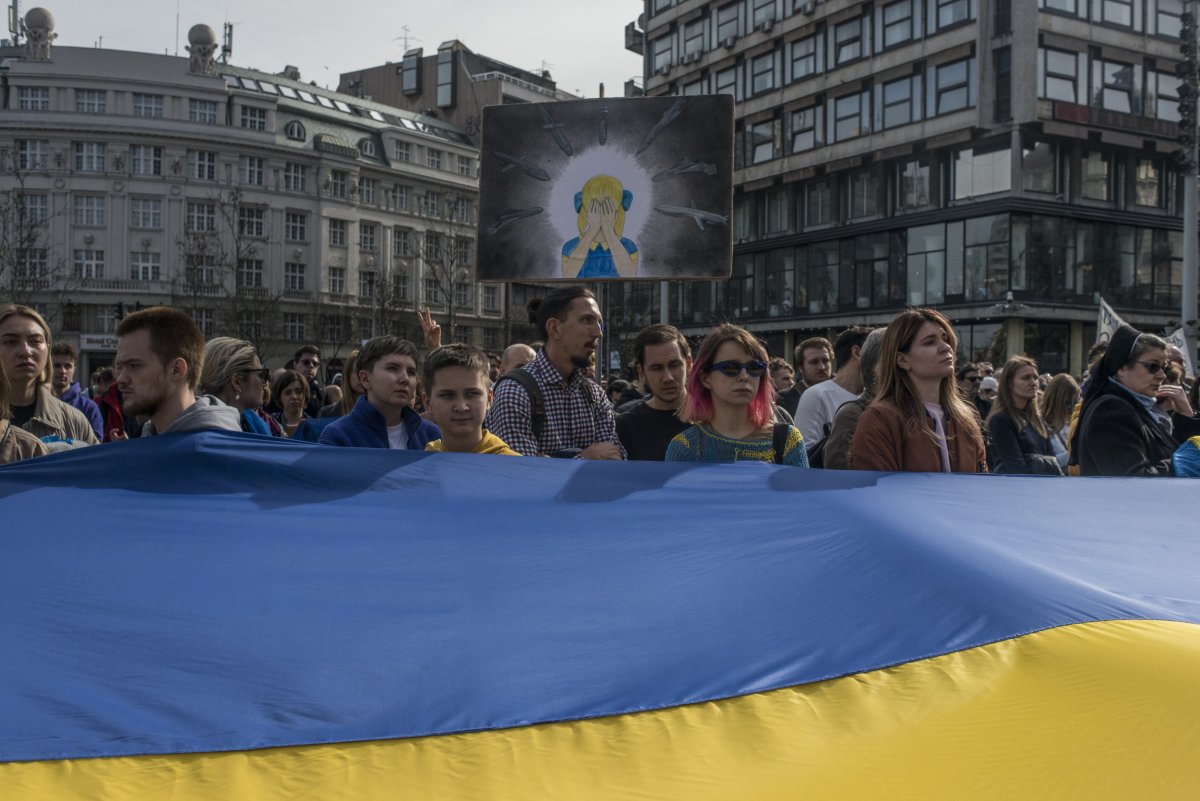Since the start of Russia's full-scale invasion of Ukraine on February 24, 2022, approximately one million Russians have taken up residence abroad. While those fleeing direct threats of political persecution, a relative minority, have been able to receive asylum status in the European Union, most of the Russians seeking a way out of Vladimir Putin's increasingly totalitarian realm have set about reestablishing their lives in the handful of countries situated somewhere between the "Russian world" and the West: Kazakhstan, Turkey, Georgia, Armenia, Israel, and Serbia.
In Serbia, where the domestic population of just under 7 million remains largely divided between pro- and anti-Kremlin sentiments, the past 18 months have seen over 100,000 Russian citizens apply for residency. Ironically, the fact that so many Serbians retain unpleasant memories of the NATO bombing campaign that pounded their country for over two months in the spring of 1999 has helped ensure that Russian citizens, even those who are against their country's ongoing invasion of Ukraine, can still receive a relatively warm welcome from the government in Belgrade.
Among them are tens of thousands of economic migrants, largely IT professionals and engineers, who have been relocated by major Russia-based companies, including the tech giant Yandex, in order to permit them to continue their work in a sanctions-free environment. Along Belgrade's quickly modernizing Danube riverfront, fashionable cafes offering quality coffee, reliable wi-fi and Russian staples including the kefir-based cold summer soup "okroshka" have begun catering to the new crowd.

However, despite the plethora of Putin-themed T-shirts for sale at the trinkets kiosks in the park near Belgrade's medieval fortress, the monument to Czar Nicholas II off the capital's central King Milan Street, and the occasional "Z" graffiti to be found on sidewalks and lampposts around town, plenty of opposition-minded Russians have begun making Serbia home.
"In Russia I would be in legal jeopardy for being against the war, but I wasn't politically active enough before February 2022 to qualify for asylum in Europe," Dmitry, a journalist from Moscow in his mid-30s, told Newsweek.
As a result, after stopovers in Georgia and Uzbekistan, Dmitry and his wife settled on Serbia as "the most European country we could get into after we'd made the decision to leave."
That decision often comes at significant financial cost. IT professionals whose companies made the commercial decision to relocate large segments of their workforces abroad had a relatively easy transition. But it is a very different story for political migrants like Dmitry.
Many of them are still reliant on salaries from Russia-based companies that continue to pay them in rubles for remote work, forcing them to turn to a combination of high-commission transfer services and crypto currency accounts in order to get around Western financial sanctions in order to get paid. Many note that the effect of the international sanctions has been harder on Russians fleeing the Putin regime than on those who, willingly or not, continue living under it.

But despite the presence of so many Russian exiles, richer and poorer alike, in so small a country, the frequency of Russian spoken on the streets of Belgrade appears to be lower than in Berlin or even in Warsaw, a fact likely due to the relatively low number of Ukrainian refugees taking up residence in Serbia.
According to UNHCR statistics, Serbia and Kosovo combined have become home to just 4,530 displaced Ukrainians. In contrast, Germany (1,087,130) and Poland (968,390) have remained home to large Ukrainian communities even after hundreds of thousands of those displaced in the early months of the war have returned to their apartments in relatively safe cities such as Kyiv and Lviv.
"Ukrainians and Russians live in parallel realities, even in Serbia," Dmitry noted. "Every time I've tried to get acquainted with Ukrainians in Belgrade, even just to interview them about their experiences, they were hesitant. They know that there are Kremlin agents among the Russian community here."
"We know that too," he added, "but as Russians, having Kremlin agents hanging around everywhere is nothing new for us."
Despite the Russian presence, however, Serbia has proven to be the ideal destination for one particular category of Ukrainian refugee.
"This is the best place for mixed families," Olga, a Russian national in her 40s whose husband holds a Ukrainian passport, told Newsweek. "When Serbians hear us speaking Russian, they say 'oh, our brother Russians!' Then, when we tell them that my husband is from Ukraine, they say, 'oh, our brother Ukrainians!' It's the one place where we can all be accepted as fully-fledged people."
While Serbian society's relative neutrality means that Ukrainian flag displays on the streets of Belgrade remain an all but nonexistent sight, the country also remains the best available option for others with complex situations.
Timofei, 19, was born in Moscow but grew up largely in his father's hometown of Odesa, Ukraine. He retained his Russian passport, however, and well before the start of the full-scale war in February 2022, he had enrolled in university in St. Petersburg. When Putin announced a wave of mobilization last September, Timofei, fearing that Russia's borders might soon be closed to military-aged male citizens like him, finally decided that it was time to leave. A Russian friend in Europe was in the process of relocating to Serbia, and after a short stay in Armenia, Timofei set off for Belgrade.
"I'd like to have a couple of cases opened against me in Russia," Timofei said with a bit of irony in his voice. "That way maybe I could get asylum in Europe."

As a Russian citizen, Timofei cannot return to Ukraine without obtaining a visa, a difficult process under the circumstances. His parents and younger sister back in Odesa, legal permanent residents of Ukraine who nonetheless retained their Russian passports, risk being refused re-entry if they leave the country, making even a temporary family reunion all but impossible.
They still speak frequently by phone, however.
"My sister and I practice our Ukrainian together," he said. "A lot of younger people, even in Odesa, have switched over from Russian, and I have to be ready for when I can finally go back to Ukraine."
But as Russia's war in Ukraine drags on with no end in sight, many migrants have begun to make plans that do not include any expectation of a future homecoming.
"We'll only return to Russia after the current regime has been eradicated, which even after the war ends might take another decade or two," Konstantin, an entrepreneur in his mid-40s, told Newsweek. "Speaking realistically, I might not return for the rest of my life."
After moving his family from southern Russian to the Georgian Black Sea port of Batumi in 2022, Konstantin established a foundation that continues to aid Ukrainian refugees in the country. However, he said it soon became clear that Georgian society "looked at us as occupants, a position that is completely justified."
By comparison, Serbia proved more welcoming, even if not all of the locals share Konstantin's anti-Putin views. It is relatively easy for Russian citizens to establish residency, and the government offers them the opportunity to receive a passport after three years spent living and paying taxes in the country. As his Serbian language skills have improved, Konstantin has even developed a kind of litmus test for determining his interlocutors' political allegiances.
"Almost anyone you talk to here will say that the blame for the war in Ukraine lies with 'one crazy man,'" he explained. "The trick is to listen for long enough to find out whether they mean Putin, Zelensky, or Biden."
Occasionally, the anti-Putin Russian emigrees even succeed in educating their new hosts about realities back home.
"The majority of Serbians who support Putin have never actually been to Russia," Konstantin said. "Sometimes, when they hear it from us that even in Moscow you can't freely speak your mind, let alone openly protest against the government, they at least start to question some of their beliefs about how great Russia really is.
Uncommon Knowledge
Newsweek is committed to challenging conventional wisdom and finding connections in the search for common ground.
Newsweek is committed to challenging conventional wisdom and finding connections in the search for common ground.
About the writer
To read how Newsweek uses AI as a newsroom tool, Click here.






